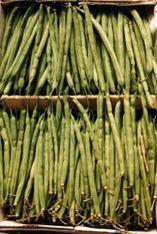
The Kenyan government has been forced to step in to stop large companies paying inflated prices for beans as supplies run low due to a dry spell at the end of 2011.
Arid conditions towards the end of last year meant growers in many areas of Kenya were unable to plant crops that would have been ready to be shipped over the last fortnight.
Usually, with lower yields forecast, suppliers would simply turn to other sources of supply but output from Egypt has suffered from extremely cold weather and Morocco’s crops have been deluged with rain so retailers have had a difficult time securing stocks.
Tiku Shah, chairman of the Fresh Producers Export Association of Kenya, said the has state intervened because exporters were buying beans from anywhere they could.
“A lot of schemes that it [the government] had invested into were selling their produce to the big supermarkets when they came along and offered higher prices,” he said.
This has meant supply contracts and gentlemen’s agreements have been being ignored because growers have been able to seek higher prices on the free market.
One insider with close links to Kenya said the situation has had a big impact.
“It’s affected all of us. Prices have jumped alarmingly,” he said. “The Government is concerned it is getting out of hand and it wants to sort it out with the new crop coming through.”
According to Shah, growers in government schemes have already told the government they will not supply to the supermarkets when it is not in their contract to do so.
“They [the government] sat down with everyone and they said ‘we need to respect each other’ and they said that if a company comes and offers a higher price they would take action against them."
The situation is now settling down as the next crops are starting to come through and Shah is feeling confident the bean industry will soon be at the top of its game.
“At the moment the next two or three months are looking very good,” he said. “The reservoirs and rivers are at full capacity and Lake Naivasha is at its highest level in decades. It’s very positive.”
The surge in prices sent prices for four kilograms to 1,200p at Western International last week and 900p at New Spitalfields.



